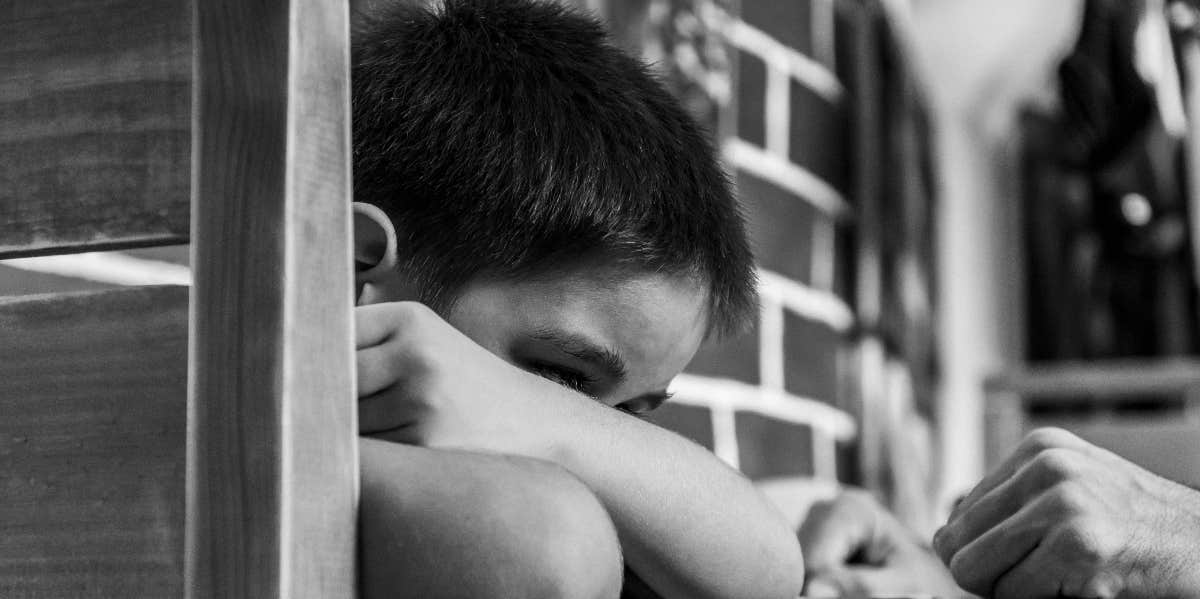Wales Makes Spanking Children Illegal But Critics Fear This Will ‘Criminalize’ Parents
Children now have the same rights as adults.
 Wirestock Creators / Shutterstock.com
Wirestock Creators / Shutterstock.com Wales has just recently passed a historic law for children’s rights that makes smacking and slapping children illegal.
The law specifies that all forms of “physical punishment” will be outlawed for all of the people of Wales, including visitors, and specifies and explains all of the ins and outs of the new legislation.
Wales is fighting “to protect children and their rights” with their physical punishment ban.
The Labour-led Welsh government signed the new legislation into law on Monday and was praised by many child protection champions — labeled as historic by the Labour Party.
RELATED: 7 Reasons I Will Never Spank My Kids — And Neither Should You
They’re so proud of the law that they’re now asking for England to follow suit.
However, not everyone is happy with the law and there are actually a lot of criticisms weighing against the change.
Naturally, the Welsh Conservatives oppose the new law, citing that it would be punishing parents who are simply trying to do their best and creates a “Stasi culture” with people “shopping” their neighbors.
The Stasi was an oppressive police state in East Germany during WWII that relied on a network of informants who would rat out their peers, leading to an environment where no one could be trusted and everyone would be questioned.
According to the website created to usher in the new child protection law, when you “see a child being physically punished” or are “concerned about a child,” you are allowed to contact your local social services department or call the police if there’s any immediate danger.
RELATED: Cop's Wife Posts TikTok Video Threatening Her Kid With A Wooden Spoon — Gets CPS Called On Her
Julie Morgan, the deputy minister for social services, has been campaigning for the law change for more than two decades and had only nice things to say about the legislation.
“Today is a historic moment for children and their rights in Wales as we make physically punishing children a thing of the past,” she said.
She also denied the idea that it would create a Stasi culture, saying “We don’t want people spying,” but added: “Looking after children is the responsibility of the whole community.”
Morgan believes that not many parents use the physical punishment method to discipline their children anymore and that this new legislation will “reinforce that” culture.
She also implored that other nations should follow Wales and Scotland, which brought in a ban in November 2020.
“We’d love it to happen in England,” she added. “We’re happy to work with people in England to push this forward.”
The emphasis of the law is that children will have a lot of the same protective rights as adults do.
The physical punishments that they name on the website are “smacking, hitting, slapping and shaking,” but they also explain that a full list is impossible to give, so any type of physical treatment that is used to punish is illegal.
Before physically punishing children was already outlawed in schools, children’s homes, local authority foster care homes, and childcare settings, but now applies everywhere to everyone.
Not only that but the punishment is being taken much more seriously now — allowing for a criminal record to be created for breaking the law and charging offenders with assault and battery, similar to if they hit an adult.
They also wanted to make it clear that “rough and tumble” play was still being permitted and that the punishment aspect is what really matters as research has shown physical punishment is detrimental to a child’s health.
Isaac Serna-Diez is a writer who focuses on entertainment and news, social justice, and politics. Follow him on Twitter here.
